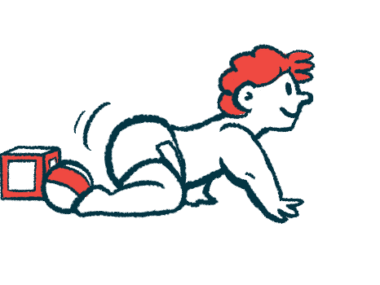Direct Referral to Expert Centers May Lead to Early Pompe Diagnosis, Study Suggests
Written by |

People with Pompe disease symptoms who are not directly referred to expert centers for a diagnostic work-up tend to take much longer to be properly diagnosed with this rare genetic disorder, a study shows.
Researchers say facilitating direct referral might help with early diagnosis of Pompe.
The study, “Extent, impact, and predictors of diagnostic delay in Pompe disease: A combined survey approach to unveil the diagnostic odyssey,” was published in JIMD Reports.
Pompe disease can be misinterpreted as several other neuromuscular disorders due to overlapping signs and symptoms. A correct diagnosis, if made early, can improve patients’ quality of care “by opening the gate to specialized multidisciplinary centers and genetic counseling services,” the researchers said.
However, Pompe disease is still poorly recognized and underdiagnosed, increasing the number of delayed diagnoses. Importantly, “determinants of diagnostic failure or delay have not yet been systematically studied,” the investigators said.
A team from the Paracelsus Medical University in Austria, the University Children’s Hospital in Switzerland, and the Mainz Medical University in Germany, sought to explore patients’, parents’, and physicians’ perspectives on factors associated with diagnostic delay.
Using an online survey, they collected data on perceived disease symptoms at onset and during the course of the disorder, specialties of the involved physicians, and the perceived impact of time to diagnosis on disease outcome. The data was compiled based on 32 patients — 15 males and 17 females. Among them, nine had been diagnosed with infantile Pompe disease, and the remaining 23 with the late onset form of the disorder.
“Twenty-one patients and 11 parents (2 fathers, 8 mothers, 1 missing information) completed the respective surveys,” the researchers said.
All study participants were correctly diagnosed at a metabolic or musculoskeletal expert center. Patients who had been directly referred to this type of facility were found to be early diagnosed, while individuals who were examined by several health care providers had their correct diagnosis delayed over 44% to 200% longer.
A total 34% (11 patients) of those with Pompe were misdiagnosed before seeing a metabolic or neuromuscular expert. For some, infantile Pompe disease was first considered to be “unclear weight loss,” “mononucleosis,” “birth injury,” or “hip dysplasia.” Those with late onset Pompe were thought to have “unclear muscle dystrophy/hypotonia/weakness,” “ankylosing spondylitis/degenerative back disease,” “depression,” “fatigue,” or “gait abnormalities.”
A self-initiated search on the internet for a diagnosis was made by 36% of the survey participants — three parents of infantile Pompe disease patients and six late onset patients. The searchers used Google the most, followed by Yahoo. One patient said Pubmed was a primary source of information.
“One LOPD patient consulted medical literature, and one patient contacted medical institutions for help,” the researchers said.
More than half (57%) of the survey participants said they were referred to an expert center by a pediatrician. Neurologists were found to be involved in the referral of 18% of the patients.
Although this study had a small sample size, the results suggest that patients with general symptoms should be referred to an expert center at the beginning of their diagnostic process, the researchers said. That would allow patients to be properly evaluated and diagnosed — which would allow them to benefit sooner from appropriate disease management.
“In conclusion, our study not only corroborates the substantial diagnostic delay in Pompe disease from previous publications, but it gives clues toward an improved strategy to facilitate early diagnosis of Pompe disease, which aims for early referral of patients with unspecific symptoms to expert centers,” the researchers said.


